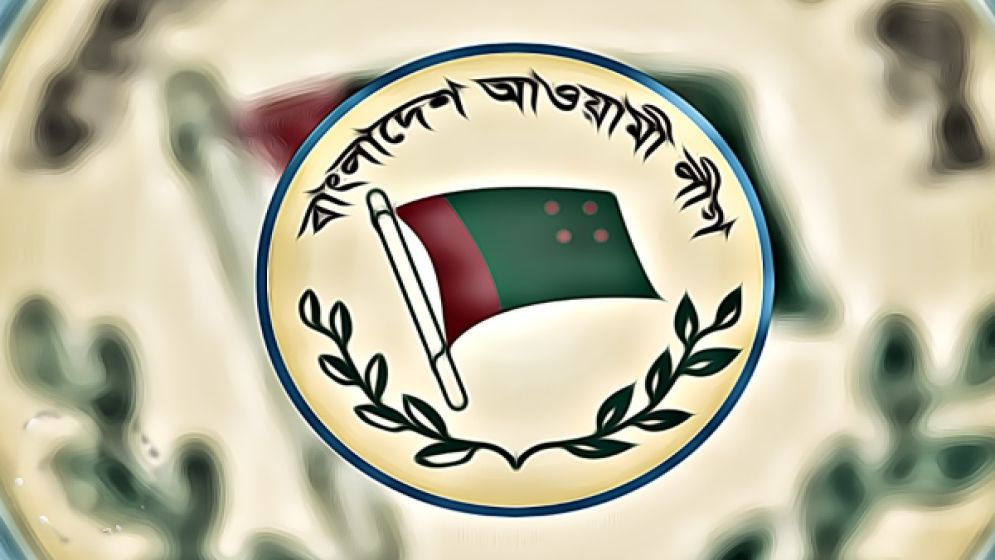Awami League government faces mounting pressure from duel protests

The Awami League government is currently under heightened pressure due to two simultaneous movements: protests by university teachers regarding pension issues and demands for reform of student quotas.
These challenges are exacerbating existing societal unrest driven by economic difficulties such as rising commodity prices and energy crises.
Drawing from past experiences, the government is handling the ongoing student quota reform protests with great caution.
Senior government officials have hinted at a deliberate strategy aimed at preventing the protesting students from becoming direct adversaries of the government.
Nevertheless, the government remains resolute in its stance against the demands of university teachers who oppose the 'Prattay' pension scheme. This firm position may increase pressure on the Awami League-led government in the near future.
The Bangladesh Nationalist Party (BNP) and other opposition groups meanwhile have shown support for recent student and teacher protests, a development that has raised concerns within the ruling Awami League.
The Awami League leadership believes the opposition is attempting to capitalize on any movement against the government, a tactic they believe has historically been unsuccessful.
Despite the opposition's lack of success in mobilizing large-scale political actions, they are actively highlighting issues like inflation, which is already a concern for many due to rising prices.
The government is aware that prolonged protests by students and teachers could pose a challenge and is therefore working to resolve these issues swiftly, Bangla Outlook has learned by talking with some top officials of the government.
Can BNP capitalize on it?
BNP is strategically planning to leverage these situations to exert additional pressure on the government. They are developing protest plans aimed at exploiting the government's vulnerabilities and have already initiated a strong movement against them.
BNP leaders foresee that even if the Awami League secures a new government through what they describe as a ‘one-sided’ and ‘rigged’ election on January 7, 2024, it will struggle to maintain its grip on power.
The administration will confront challenges including escalating commodity prices, economic crises, shortages of gas and electricity, social unrest, and opposition political movements.
Talking with Bangla Outlook, BNP Secretary General Mirza Fakhrul Islam Alamgir asserted, "We have no choice left. The continuation of this government spells ruin for our nation and democracy. To safeguard ourselves, we must intensify our movement. Through this struggle, we must defeat them."
The primary driving force behind the quota reform protests is the spontaneous involvement of ordinary students, with the movement gaining momentum nationwide. In response, both the government and the ruling Awami League have adopted cautious political postures.
Senior figures within the Awami League have indicated that directives have been issued to their student wing, the Chhatra League, to refrain from disrupting the peaceful activities of student protesters.
On Sunday, Awami League General Secretary Obaidul Quader emphasized that the government is actively monitoring the student protests regarding the quota system.
He stated, "The issue being protested by students stems from a decision made by the government. The court has issued a different verdict. We did not initiate this decision; it was ruled upon by the court."
Quader also expressed confidence that the nationwide strikes initiated by university teachers and the ongoing student protests for quota reform would be resolved.
"We are in communication with the teachers. Regarding a specific meeting time, I cannot provide details, but the matter will be addressed in due course," he assured.
Learning from 2018 movement
During the 2018 quota reform movement led by the Bangladesh General Students' Rights Protection Council, the government initially adopted a firm stance.
However, in response to sustained protests, the quota system for government jobs in grades 9 to 13 (first and second class) was eventually abolished.
In response to ongoing student protests, the government is emphasizing its previous decision to eliminate the quota system.
A minister, who chose to remain anonymous, confirmed the Awami League government's past and continued commitment to abolishing quotas. This message has been communicated to both the Awami League and Chhatra League to share with the protesters.
However, it remains uncertain how effective this message will be in appeasing the protesters. The government's rationale is that the High Court ruled the circular abolishing the quota system as illegal following a writ petition.
The government has appealed this decision, and the matter is currently awaiting a hearing in the Appellate Division, where the final verdict will be made.
According to various sources, government ministers and Awami League leaders plan to emphasize these legal and political points in their interactions with the protesters.
—

